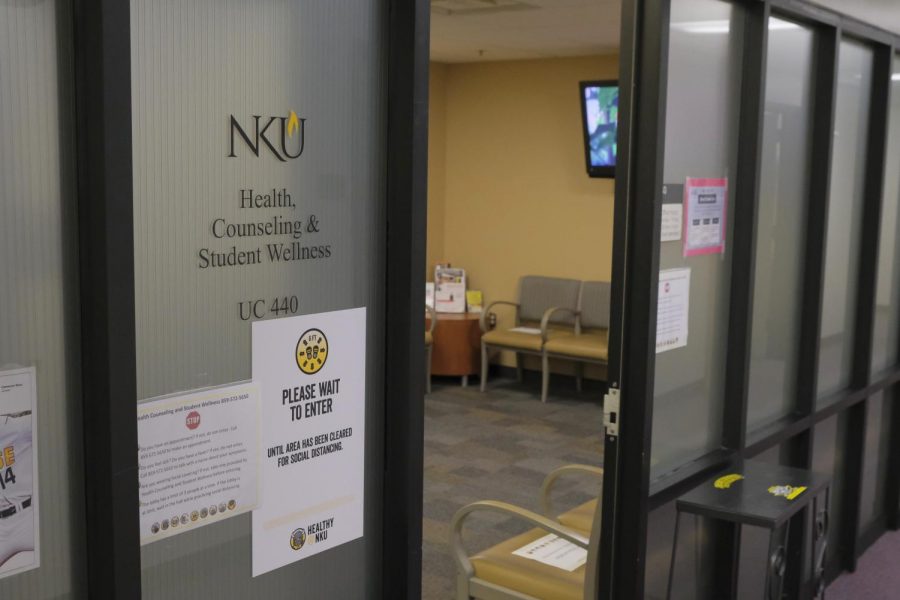Health officials urge flu vaccine to prevent ‘twindemic’
September 27, 2020
Regional health officials and administrators encourage citizens to receive the flu vaccination to ward off the looming ‘twindemic.’
“Protecting ourselves against the flu is more important than ever,” Dr. Steven Stack, commissioner of the Kentucky Department for Public Health, said in a recent COVID-19 update by the state administration. “An influenza outbreak on top of the COVID-19 pandemic could be disastrous this fall and winter.”
The “twindemic,” as recently coined by health administrators including Stack, describes how the flu season could directly exacerbate the pandemic unless proper preventative measures are used.
This year, it is extremely important to receive a flu vaccine to protect yourself and others, said Dr. Lynne Saddler, district director of health for the Northern Kentucky Health Department.
Without the influenza immunization, you could contract the flu and COVID-19 at the same time, which could make you “very, very sick,” according to Saddler.
“By having both of these at the same time, you’re asking your body to do an awful lot to fight off these two viruses,” Saddler said.
The influenza immunization also lowers the possibility of spreading the flu virus to those around you.
According to Saddler, the flu is similar to COVID-19 in that the eldery population is most vulnerable to the virus. If a person with a compromised health system contracts the flu, they could end up in the hospital. This places an additional strain on health care facilities.
“We’re concerned that if we see a lot of flu this year, if we see an increase in the cases of COVID-19, and a lot of sick people end up in the hospital, we could end up overwhelming our hospitals,” Saddler said.
Sick individuals could also mistake their flu symptoms for COVID-19 due to many shared similarities between the two viruses.
“They’re both viral things,” Rose Tempel, director of Health Services, said. “The big thing this year is going to be that many of your flu symptoms—like fever, congestion, cough, body aches—are all similar to what COVID symptoms are.”
But a main distinction between the influenza virus and COVID-19 is the availability of treatment. A vaccine for COVID-19 has not been released, but the flu vaccine is readily available at a global scale, including within this specific region.
Several local health care providers, including Health Services, have or will have the influenza vaccination available at low to no cost.
St. Elizabeth physicians currently provide drive-thru flu shots at select locations. TriHealth Priority Care—located in Mason, Ohio—now accepts walk-ins everyday for the vaccination. Kroger has also advertised free flu shots via its Little Clinic locations throughout the area.
Health Services will have 150 doses of the vaccine available by the end of this month, according to Tempel. Approximately 600 doses have been ordered in total.
As flu season typically begins at the beginning of October, Tempel and Saddler strongly recommend receiving the influenza immunization as soon as possible.
“People sometimes think, ‘I got the shot. I’m good to go,’ but it does take a couple of weeks for your body’s immune system to make the antibodies that will fight off at least the four strains of the flu virus that are in this year’s vaccine,” Saddler said. “You’ve got to remember to give yourself some time to build up your immunity against the flu.”
In addition to the flu immunization, Tempel and Saddler advise following common health guidelines such as the use of facial masks, social distancing and frequent hand washing.
Since these health guidelines are in more frequent use due to the COVID-19 pandemic, it is also possible that Northern Kentucky might have a milder flu season than usual, according to Tempel and Saddler.
Tempel used such places as Australia, which has the flu season much earlier, as an example. According to recent coverage by CNN, Australia had a record-low flu season due to many citizens using facial masks and socially distancing.
However, given that America has a difference in adherence to health guidelines, it is not possible to guarantee this region will have a mild season, according to Tempel.
“It depends how well everyone behaves,” Tempel said.
Since there is an additional emphasis on the influenza vaccine this year, some have worried about a potential vaccine shortage.
However, according to the U.S. Centers for Disease Control and Prevention, vaccine manufacturers have projected that they will supply as many as 194 to 198 million doses of influenza vaccine. In addition, the manufacturers have not indicated any significant delays in distribution.
The influenza vaccine is also free under most health insurances.
“It’s available, it’s accessible and it’s a great way to prevent the flu. You could help protect our health care facilities this winter,” Saddler said.
Health Services will soon advertise the vaccine via signage posted on campus and social media, Tempel said. She encourages all members of the campus community to receive the immunization.
Individuals are encouraged to reach out to their local health provider for the influenza vaccination.

